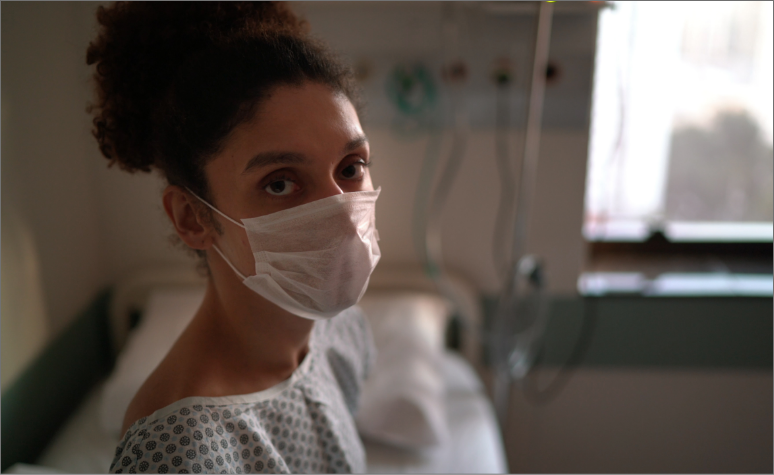Preventative Care to the Front! Cancer Screenings in the Back
If you’re 45 or older, there is a new kind of booty call you should DEFINITELY answer.
People of all genders should be screened for colorectal cancer.
If found early, doctors can often stop colorectal cancer.
Show the people how it’s done, preventative medicine is an act of self love.

Did you know that Colorectal Cancer can mostly be prevented?
Cancer screenings have come a long way. Doctors can now find and remove precancerous polyps —abnormal growths in the colon or rectum— before they turn into cancer. These earlier stages of colorectal cancer usually prevent no symptoms, are easier to treat, and easier to survive.
The American Cancer Society estimates that the number of colon cancer deaths could drop by half if all Americans were routinely tested. Once you turn 45, it is incredibly important to get screened for colorectal cancer. Don’t wait until symptoms start, preventative care can save your life!
If something doesn’t feel right, listen to your gut!
You know your body better than anyone else. Please don’t ignore the signs of colorectal cancer.
Symptoms can include:
- Pain in the abdomen
- Blood in stool
- Change in bowel habits
- Constipation
- Narrow stools
- Passing excessive gas
- Abdominal discomfort
- Weight loss
- Anemia
- Fatigue
Ready to get screened
We know finding a provider you feel comfortable with is easier for some of us than others, but everyone deserves a doctor they can trust. Check out this guide for finding an LGBTQ+ welcoming provider and check out our provider database.

Learn Your Screening Options
Although colonoscopy is a common and recommended screening method, it is not the only option. Explore the below screening tests, all of which are typically covered by insurance, to determine which is best for you. Discuss with your medical provider for guidance.
A colonoscopy is an exam used to look for changes- such as swollen, irritated tissue, polyps or cancer- in the large intestine (colon) and rectum . During a colonoscopy, your doctor examines the lining of your entire colon by inserting a long, thin, flexible tube called a colonoscope into your colon through the rectum. The tube has a tiny video camera and light
at the end that sends images to a video monitor to check for polyps or tumors. If any polyps are found, they can be removed immediately. A colonoscopy is done in a hospital. You will be sedated and will not recall the procedure. Bowel cleansing or “prep” will need to be completed the day before your colonoscopy.
During a sigmoidoscopy the rectum and the sigmoid colon are examined with a flexible lighted tube and a tool for removing tissue. Similar to a colonoscopy, if polyps are found they can be immediately removed. A sigmoidoscopy is generally considered to be less invasive than a colonoscopy because it only looks at the lower part of the colon, and unlike a colonoscopy people are usually not sedated for this test.
There are 3 types of stool-based tests. These tests are done at home and are very effective in finding cancer at an early stage. Both polyps and colorectal cancers can bleed, so stool tests check for tiny amounts of blood in feces (poop) that cannot be seen visually. Some tests can detect both blood and abnormal DNA that could indicate cancer or polyps. Not all positive results mean you have cancer but if your stool test is abnormal, it is very important to complete a follow-up colonoscopy to determine the cause. Stool-based tests are for people at average risk for developing colorectal cancer and who are not experiencing symptoms.
Note: Recent changes to the Affordable Care Act require most insurance plans to cover the cost of a colonoscopy after a positive stool-based test.
A virtual colonoscopy also called CT colonography, uses special x-ray equipment to take pictures of the colon and the rectum from outside the body. This is much less invasive than a standard colonoscopy. However if polyps are found during a virtual colonoscopy, a standard colonoscopy is usually needed to remove them.
To learn more about these tests and other options visit the National Cancer Institute’s link below:
Protect Yourself from Colorectal Cancer
There are a number of things you can do to protect yourself from Colorectal Cancer, like limiting the amount of alcohol you drink, quitting smoking, and moving your body. However we recognize that these things are not always easy or accessible to all of us.
We’ve collected a few resources to help you on your journey towards
cancer prevention.
Outlast Tobacco
Cutting Back On Alcohol
LGBTQ+ Friendly Fitness
Show the people how it's done, preventative medicine is an act of self love.
“Push forward and don’t be discouraged by any medical professional. I was made to feel “stupid” for seeking screening for colon cancer because at 40 years old I didn’t fit the profile. I left the initial consult feeling like I was stupid and there was no way I had cancer. I almost didn’t go back for the exam. If I hadn’t pushed through those feelings I would probably be dead.”

When we take care of ourselves, we are able to take care of our communities. You are loved and deserving of a long, happy, healthy, life.

